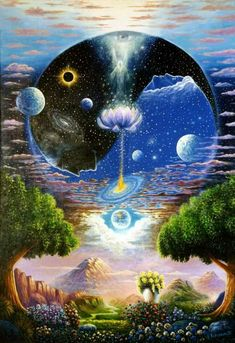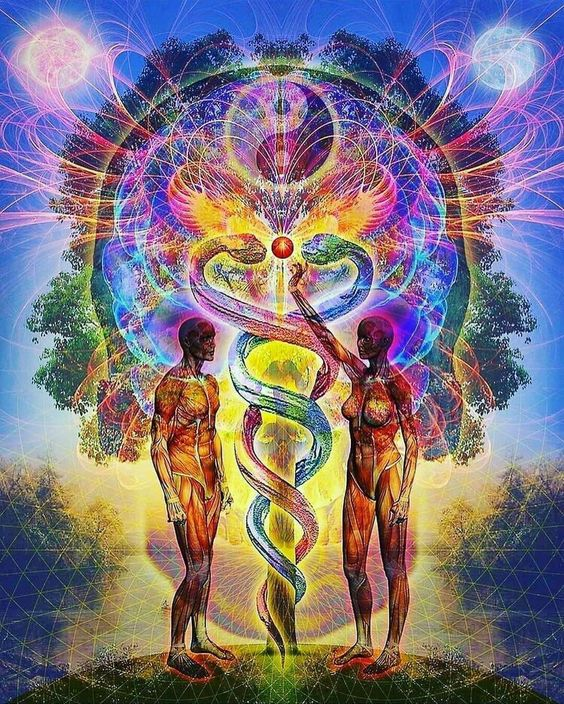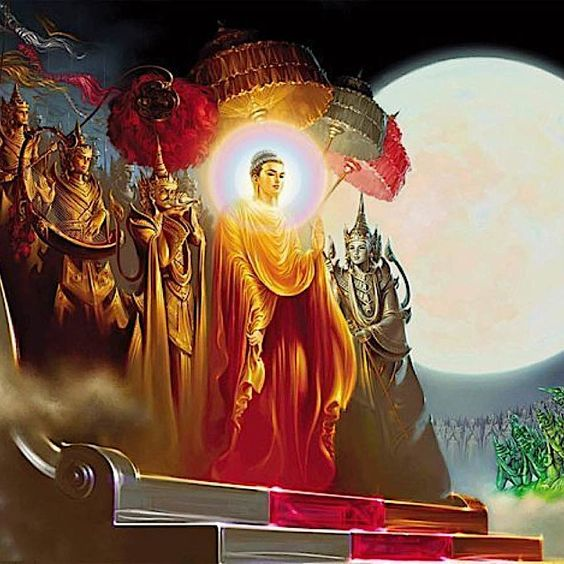"In one of the Upanishads it says, when the glow of a sunset holds you and you say 'Aha,' that is the recognition of the divinity. And when you say 'Aha' to an art object, that is a recognition of divinity. And what divinity is it? It is your divinity, which is the only divinity there is. We are all phenomenal manifestations of a divine will to live, and that will and the consciousness of life is one in all of us, and that is what artwork expresses."
Monday, July 31, 2023
Swami Lakshmanjoo
''For instance, I have come into this body. Actually, whoever has come into this body, he wants to make you understand that you are Parabhairava, you are one with Bhairava. There is nothing less than Bhairava existing in you also–in anybody! In a feeble person also, he is also Parabhairava (Universal God Consciousness).
Ramana Maharshi
"The ultimate truth is so simple; it is nothing more than being in one’s natural, original state. It is a great wonder that to teach such a simple truth a number of religions should be necessary, and so many disputes should go on between them as to which is the God-ordained teaching. What a pity. Just be the Self, that is all."~
George Burke
"Om was first perceived by the ancient yogis of prehistory and is not the exclusive property of any religion or philosophy. It is not a sectarian mantra; it belongs to all without distinction or exclusion. Nor was it invented by those primal sages. Rather, it is swayambhu: self-begotten, self-existent and self-sufficient. It arises spontaneously within, from the Self. It does not need to be artificially implanted or empowered in us by any kind of initiation. This mantra is going on in every one of us, but as long as we are outward-turned we do not become aware of it. During meditation, when we enter into our own depths, we become aware of Om, which has always been active within us. “What world does he who meditates on Om until the end of his life, win by That? If he meditates on the Supreme Being with the Syllable Om, he becomes one with the light of the sun, he is led to the world of Brahman Who is higher than the highest life, That which is tranquil, unaging, immortal, fearless, and supreme” (Prashna Upanishad 5:1, 5, 7)."
Upanishad
"Of a certainty the man who can see all creatures in
himself, himself in all creatures, knows no sorrow.
How can a wise man, knowing the unity of life, seeing
all creatures in himself, be deluded or sorrowful?
The Self is everywhere, without a body, without a
shape, whole, pure, wise, all knowing, far shining, selfdepending,
all transcending} in the eternal procession
assigning to every period its proper duty."
Anonymous (The Upanishads)
"The Katha consistently lays stress on several practical themes of the spiritual life: that a spiritual teacher is essential; that in all human experience it is really only the Self, pure consciousness, that is the enjoyer, so that when one realizes the Self “there is nothing else to be known” and “all the knots that strangle the heart are loosened”; and of course that death occurs only to that part of us which was born and launched into separate existence."
Ramanuj Prasad
"In the repetition of AUM there are four stages. ‘A’kãra, ‘U’kãra, ‘M’akãra and there is a silence before the next repetition and meditating upon the silence is Vedãntic meditation. The teacher emphasises the grasping of that silence, which is Awareness - the Ãtmã, the Self. The practice and success in the effort requires the grace of the Lord, guru and shãstra and the teacher grants his blessings to the student for success to cross over from samsara to the shores of Immortal Brahman, which is beyond ignorance."
Anonymous (The Upanishads)
"He is revealed only To those who keep their minds one-pointed On the Lord of Love and thus develop A superconscious manner of knowing. 13 Meditation enables them to go Deeper and deeper into consciousness, From the world of words to the world of thoughts, Then beyond thoughts to wisdom in the Self."
Adi Shankaracharya
"Thou art Atma: Buddhi is thy consort, Parvati (who is born of mountain); the Pranas are thy attendants; this body is thy house; the action of sensual enjoyment is thy worship; deep sleep is the establishment of Samadhi; walking by my feet is the perambulation around Thee; all my speeches are thy praises; whatever actions I perform, are all Thy worship; Oh Sambho!
Joel J Kupperman
"The Upanishads promise that, in a spiritual state referred to as moksha (liberation or release), you can have permanent spiritual fulfillment after death. In order to have this, you must follow the path of joy rather than the path of pleasure."
Paramahamsa Nithyananda
"Universe is happening, even all Enlightened Beings continue to seek. See the Enlightened Being seeking means continuous expansion, continuous expansion, so, even if Enlightened Beings are expanding, seeking, happening, then, you should be seeking. Kill all parts of you trying to become stagnant!
Chinmayananda
"No jīva is ever born; there exists no cause to produce it. That is the highest Truth, where nothing is ever born’."
Sunday, July 30, 2023
Robert Wolfe
"He lived on that high level, on the same highlands of the spirit that were disclosed in the Upanishads and Sufi classics. To go where Eckhart went is to come close to Lao Tzu and Buddha, and certainly to Jesus Christ."
Chinmayananda
"The Ᾱtman, the pure Consciousness, gets Itself deluded by Its own delusion and by Itself projects out the ‘pluralistic world’ which is nothing but Itself, It being the all-pervading and eternal."
Eknath Easwaran
The rest of the Vedas, like other great scriptures, look outward in reverence and awe of the phenomenal world. The Upanishads look inward, finding the powers of nature only an expression of the more awe-inspiring powers of human consciousness"
Matthew Barnes
"The ultimate lesson of the Upanishads is that God must not be sought as something far away, separate from us, but rather as the closest, most intimate aspects of our own being."
Swami Abhayananda
"This “vision” of the Self is described in the Upanishads as Liberation (moksha). It is a freedom, a release, from doubt, from uncertainty, from the fears attending ignorance, forever. All questions are answered; all desires and causes for sorrow are put to rest; for thereafter, a man knows the secret of all existence. All previous notions of limitation and mortality, all darkness of ignorance, is swept away in the all-illuminating light of Truth:"
Sally Kempton
"The Kena Upanishad says that the Self "shines through the mind and senses," which is a poetic way of saying that it is the power of the Self which allows the mind and senses to function. So the eternally conscious Self is what makes us conscious. Essentially, it is light.
At times when our inner vision becomes pure enough to let us see through the layers of psychic debris that thickens our consciousness and make it opaque, we realize that everything is actually made of light. We understand that we are light, that the world is light, and that light is the essence of everything. This is why so many people's experience of touching the Self are experiences of light - visions, inner luminosity, or profound and crystalline clarity."
Commentary of Sankaracarya
"He cannot be seen, neither above, nor across, nor in the middle. He is beyond grasp. There is no image that is true to His from. His name is glory itself.
Svetasvatara Upanishad - Chapt 4 - 19"
Joseph B. Lumpkin
"He who perceives the Self everywhere never shrinks from anything, because through his higher consciousness he feels united with all life. When a man sees God in all beings and all beings in God, and also God dwelling in his own Soul, how can he hate any living thing? Grief and delusion rest upon a belief in diversity, which leads to competition and all forms of selfishness. With the realization of oneness, the sense of diversity vanishes and the cause of misery is removed."
Anonymous
"All existence is in the Absolute; and whatever exists, must exist in It; hence all manifestation is merely a modification of the One Supreme Whole, and neither increases nor diminishes It. The Whole therefore remains unaltered."
Ravi Shankar
"This Truth has to be realized here and now, in this lifetime. Do not postpone it until the next lifetime. If you do not know it this lifetime, it is the greatest loss. There cannot be any greater loss than this. This is the greatest loss imaginable."
Anonymous (The Upanishads)
"That is the message of the Upanishads. The infinite – free, unbounded, full of joy – is our native state. We have fallen from that state and seek it everywhere: every human activity is an attempt to fill this void. But as long as we try to fill it from outside ourselves, we are making demands on life which life cannot fulfill. Finite things can never appease an infinite hunger. Nothing can satisfy us but reunion with our real Self, which the Upanishads say is sat-chit-ananda: absolute reality, pure awareness, unconditioned joy."
Brihadaranyaka Upanishad 4.4.7
"As the slough of a snake lies on an ant-hill, dead, cast off, even so lies this body. But this incorporeal, immortal Life is Brahma indeed, is light indeed."
Nithyananda
"when the rishis sat within them, in Samadhi, their whole being started vibrating, reverberating with the Sacred Truths. The whole being started vibrating and reverberating with the Sacred Truths. The Cosmos started singing through them. Cosmos started radiating through them. That expression is Upanishads."
Saturday, July 29, 2023
Katha Upanishad
"Indeed a sacred speech : OM
"The goal which all the Vedas declare, which all austerities aim at, and which men desire when they lead the life of continence is Om. This syllable Om is indeed Brahman. Whosoever knows this syllable obtains all that he desires. This is the best support; this is the highest support. Whosoever knows this support is adored in the world of Brahma."
Varadaraja Raman
"Upanishads we read: satyam vada, dharmam cara: Speak the truth, follow the path of dharma. Note that Auvaiyār is not instructing us to do the right thing, but to cultivate a desire to do the right thing. Once that desire is inculcated in a person, doing the right thing will become natural. We are reminded of the saying: Give a man a fish, and you feed him for a day; show him how to catch fish, and you feed him for a lifetime. Auvaiyār could have added: mei cholla virumbu: Desire to speak the truth. 2."
Ramanuj Prasad
"Kathopanishad: This is one of the most beautiful and popular Upanishad. Some understand this as ‘Kata’ for ‘Katha’, which is derived from the recension of Krishna Yajurveda - Taittiriya Brãhmana. The sublime doctrine of the Vedãnta, presented in this Upanishadis very attractive and appealing. This has won the appreciation of many inquirers, including French and German scholars. It is one of the best books on Vedãnta philosophy and poetry of ancient Hinduism. Swami Vivekananda often used to quote from this Upanishad. No other Upanishad has so much of thought elevation, depth of expression, and beauty of imaginations that this Upanishad possesses."
Bede Griffiths
"There is a beautiful expression of this in the Chandogya Upanishad: 'There is this City of Brahman, (that is the body), and in this city there is a shrine, and in that shrine there is a small lotus, and in that lotus there is a small space, (akasa). Now what exists within that small space, that is to be sought, that is to be understood.' This is the great discovery of the Upanishads, this inner shrine, this guha, or cave of the heart, where the inner meaning of life, of all human existence, is to be found."
Joseph P. Kauffman
"You are not limited to this body, to this mind, or to this reality—you are a limitless ocean of Consciousness, imbued with infinite potential. You are existence itself."
Krishna-Dwaipayana Vyasa
"These differences are not important, and the Upanishads agree on their central ideas: Brahman, the Godhead; Atman, the divine core of personality; dharma, the law that expresses and maintains the unity of creation; karma, the web of cause and effect; samsara, the cycle of birth and death; moksha, the spiritual liberation that is life’s supreme goal."
Ken Wilber
"In this regard, the pure Ego or pure Self is virtually identical with what the Hindus call Atman (or the pure Witness that itself is never witnessed, is never an object but contains all objects in itself)."
— Jagadish Chandra Chatterji
"The Being as Atman is also feeling. Feeling is the very root and ground of our existence as conscious entities. And this feeling is joyousness (ananda); to live and to be is joy; suffering is only when we are not able to live and to be as we would. Suffering is not the essential nature of Being, but joy (ananda) is; it is joy that is the root of all love and peace and bliss."
Dave DeLuca
"We are not our bodies, we are not our minds, we are not our thoughts, we are not our ego. We have a body, we have a mind, we have thoughts, and we have an ego, but our highest truth is the Ever-Blessed Atman, the fountainhead of all joy and light and love that is the core and fundamental truth of our being. One"
Jason Gregory
"In the Brihadaranyaka Upanishad from 700 BCE there is an emphasis on understanding that Atman (the true self, the deep-down, real you with no mental content or attachment to the physical world) is Brahman (ultimate reality), meaning that the idea of separateness in the world is born only from believing each of us is a permanent individual with a lasting personality. This illusion of a personal and permanent soul is known as the jiva or jivatman in Sanskrit."
Kiseong Shin
"stated above, the true self of all things in the whole world is atman/Brahman. Human beings do not realize their true self and assume that the material body, including physical body as well as mind, is the true self. That is ignorance (avidya). For Sankara, human predicament is caused by ignorance, not by sin. To be liberated, one must remove the ignorance, confusing one’s true self with something else. To remove the ignorance,"
Friday, July 28, 2023
Y. Keshava Menon
"Brahman is the universal aspect of the Self which needs to be revealed; Atman is the self-revealing essence deep within us. But to the enlightened person, Atman and Brahman are known to be the same. The problem that the mind contains the world and the world contains the mind is solved when this identification is intuitively known."
R.V.M.
"We celebrate the Birthday of the Body. But, in reality, "We" are not the Body. We are the Soul, the Atman. Therefore, Celebrate every day, as We are Immortal."
Hermann Hesse (Siddhartha)
"Whosoever immerses themselves in Atman through contemplation and a purified spirit Will receive ineffable blessing in their heart."
Eckhart Tolle
"God formed man of dust from the ground and breathed into his nostrils the breath of life and the man became a living creature.” The German word for breathing – atmen – is derived from the ancient Indian (Sanskrit) word Atman, meaning the indwelling divine spirit or God within."
-
“As the sun, revealer of all objects to the seer, is not harmed by the sinful eye, nor by the impurities of the objects it gazes on, so th...
-
Recently a Russian Orientalist, Mr Sergei Alexeyev, has described Jesus as a Hindu Sannyasin.The publication of this book will help Christ...








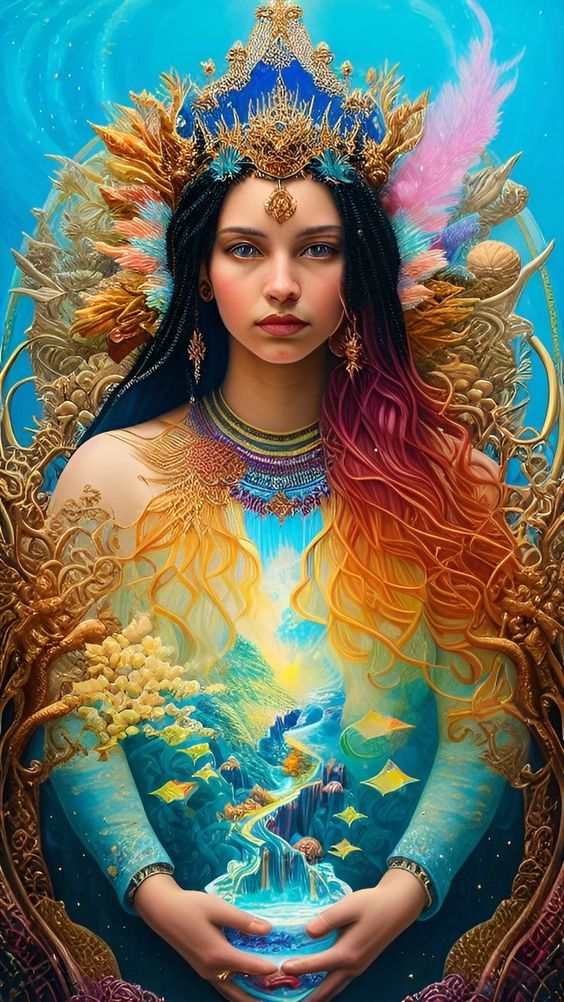
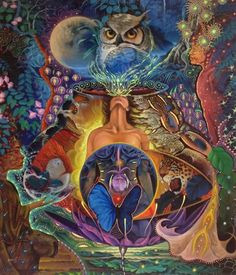

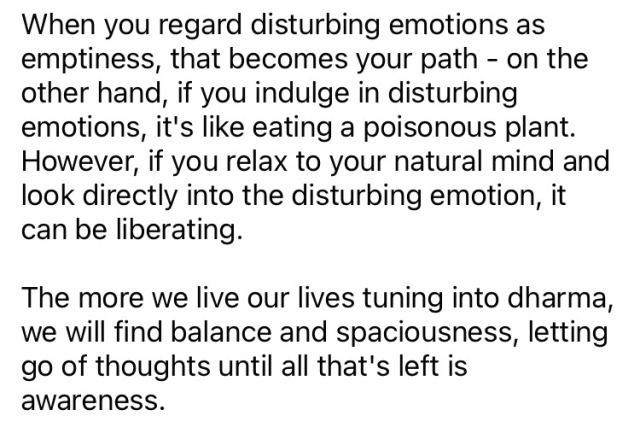




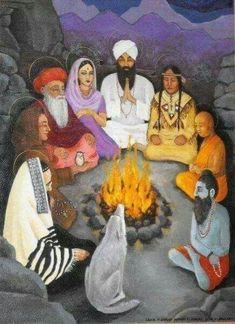

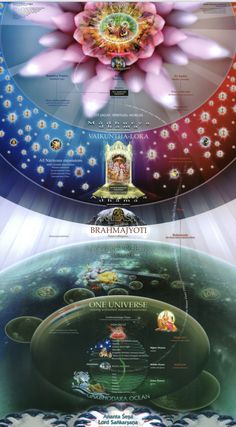
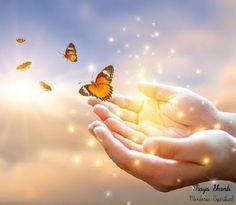




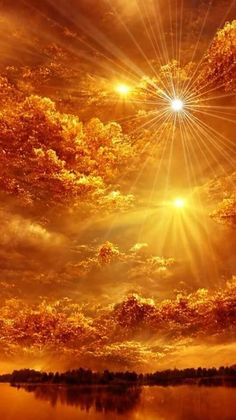







.jpg)





